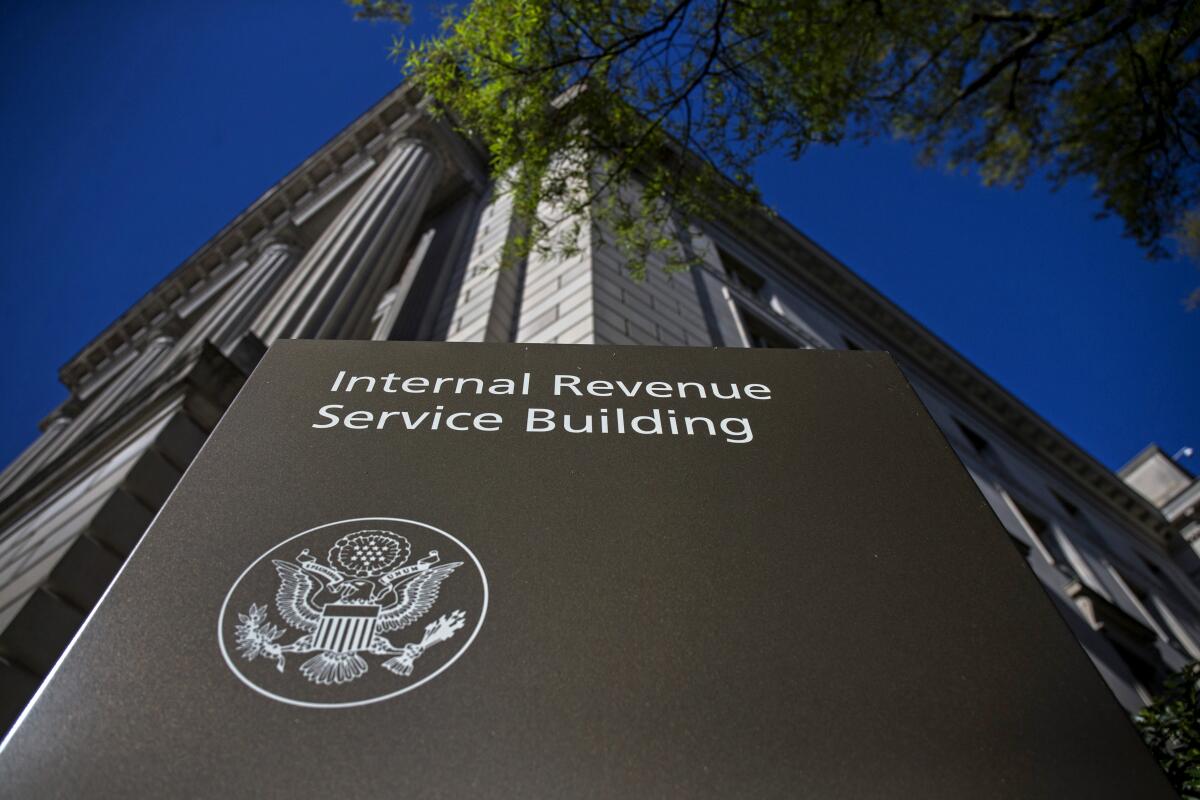Good news about your coronavirus stimulus money: It doesn’t count as income or an asset

- Share via
Dear Liz: I have a question about a recent answer you gave. The question was whether stimulus payments count as income for people who get Medicaid or Supplemental Security Income. Your — correct — answer was that they don’t, of course, but you seemed to gloss over the fact that even though this payment was not “income,” it would still count as an asset in the recipient’s bank account. The recipient’s assets are limited to $2,000 by the Medicaid program.
Answer: The relief payments do not count as income or as an asset. The money is excluded from the recipient’s resources for 12 months.
Reader asks, ‘Where’s my refund?’
Dear Liz: I filed a paper 2019 federal tax return in mid-February. It’s been more than nine weeks, and they haven’t electronically deposited my refund yet. Last week, I called the “Where’s My Refund” IRS number and got an automated response that basically they couldn’t help me. I then called the taxpayer advocate number listed in the IRS booklet, and they couldn’t help me but transferred me to the IRS’ toll-free number. After taking my information, the service person couldn’t find my return and suggested I resubmit my forms. The whole process took over two hours. Then my brother told me IRS offices are closed or have limited staff and they aren’t processing the tax returns. Why don’t they just say that at the beginning of all of their messages, instead of saying you should get it within six weeks of filing?
Answer: Over the last decade, Congress has cut the IRS’ budget by more than 20% after factoring in inflation, even as the population grew and tax law got ever more complicated. The agency was limping along with ancient technology and too few people to help the public even before the pandemic sent most of its workers home, without the ability to telecommute.
The agency has been trying to recall its workforce as quickly as it can, but there is a truly massive backlog of paper returns that has yet to be processed. Sending out stimulus relief checks has taken priority, and that Herculean effort is still in process.
You may be frustrated by what you perceive as poor customer service, but this situation didn’t develop overnight and taxpayers are reaping what they sowed, or at least reaping what their lawmakers sowed. You should let those lawmakers know how you feel if you want this to change.
And you should change, as well. It is not smart to send a tax return through the U.S. mail. Electronic filing is a much more secure alternative, and it’s quicker. With direct deposit, you can get your refund within days. Even with the pandemic, most e-filers have gotten their refunds promptly.
Getting sister’s house without a will
Dear Liz: When I retired in 2018, I rolled over my 403(b) teachers retirement account into a traditional IRA and made my sister sole beneficiary. I sent her a copy of that beneficiary statement showing her name, her percentage (100%), and my account number. My sister later told me in a phone call that she wished to bequeath me her house should she predecease me. She explained she didn’t have a will but she made her feelings known to our older brother. Even if I were on speaking terms with our older brother, I would find this arrangement naive. Knowing my sister, she actually believes this method is the right way to proceed with her wishes. I’m asking you to be Dear Abby, perhaps, but what do I do?
Answer: You can explain to her that if she doesn’t have a will, the laws of her state will determine who gets her house regardless of what she intended. If your sister does not have a spouse or children, and your parents are dead, you and your brother would probably inherit the home as well as the rest of her estate. You would have to negotiate what to do with the house, which could be difficult if you two still aren’t speaking.
If you can’t get her to write a will, there may be another option. Many states allow “transfer on death” deeds, which are forms that allow people to name a beneficiary for their home. This would ensure that the house is left to you and that it avoids probate, the court process that otherwise follows death.
Liz Weston, Certified Financial Planner, is a personal finance columnist for NerdWallet. Questions may be sent to her at 3940 Laurel Canyon, No. 238, Studio City, CA 91604, or by using the “Contact” form at asklizweston.com.
More to Read
Inside the business of entertainment
The Wide Shot brings you news, analysis and insights on everything from streaming wars to production — and what it all means for the future.
You may occasionally receive promotional content from the Los Angeles Times.










